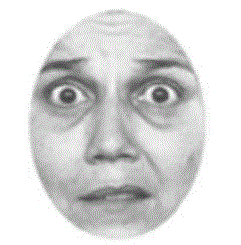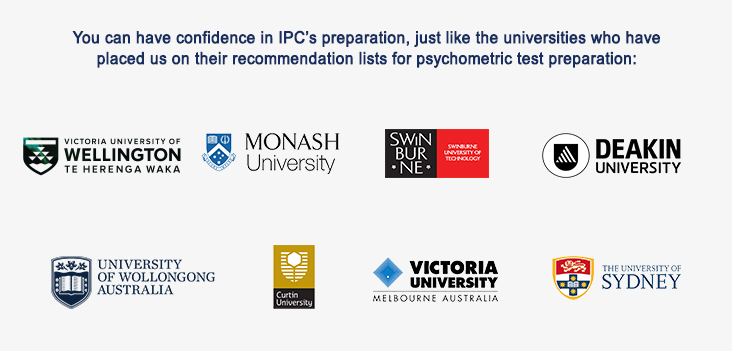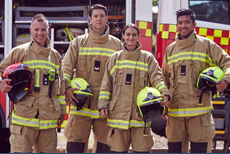Fire and Rescue NSW (FRNSW) tests, video interview, panel interview preparation 2025 (delivered by expert psychometricians)
Preparation for your aptitude tests (CCAT, Emotify, Mechanical), Personality test (Work style assessment) and interviews (video and group assessment) to join Fire & Rescue NSW 2025
Applying to become a firefighter with Fire and Rescue NSW:
(if you are applying to become a station manager with Fire and Rescue NSW, please go to the bottom of this page to read about your tests)
If you are applying to join NSW's Fire & Rescue, you will be asked, as part of your 9 steps application process, to complete several challenging online psychometric testing:
In step 1, you will be asked to compete the following online testing:
1. Criteria's Cognitive Ability test (CCAT) - this timed ability test measures your abstract, verbal and numerical abilities.
2. Mechanical ability test - this test measures your mechanical abilities focusing on your understanding of mechanical concepts.
3. You will also be asked to complete a timed Emotional Intelligence test (Emotify) to ensure that you are effective in managing your emotions and can predict others' emotional response.
In step 2, you will be asked to complete a video interview:
You will be asked to complete a recorded video interview in which you will be given 2 minutes to answer each question.
In step 5, you will be asked to complete the following online testing:
1. You may be asked to complete the same psychometric tests, which you completed in step 1, on site supervised by FRNSW staff.
2. You will also be asked to complete a Work style assessment, which is a personality test to ensure that there are no risks that might hinder your performance as a firefighter.
In the final step, you will be asked to participate in an assessment day which includes a group activity and a panel interview.
Fire and rescue NSW's online Cognitive Ability Test (CCAT):
This test has 51 test questions and you only have 20 minutes to complete it. This is a very difficult task to complete in such a short time.
The test measures your cognitive ability in three key areas using 3 types of test questions:
1. Verbal test questions in the online cognitive ability test for NSW fire and rescue:
This type of questions in your cognitive ability test measures your verbal reasoning and deductive reasoning skills. Test questions in this section include several styles.
These test questions are designed to measure your ability to identify words that do not belong to a group or find word associations or logical thinking.
Let's check the following verbal test questions examples in the online cognitive ability test for NSW fire and rescue:
Example verbal question 1:
Which two statements together prove that Tim has a red car?
A. Gil likes Tim's car colour
B. Tim likes fast cars
C. Gil has a fast car
D. Gil likes only red cars
E. Tim's car is not silver
The correct answer is A and D, as if Gill likes only red cars and Gill likes Tim's car colour then Tim's car must be red.
Example verbal question 2:
Which are the two odd-ones out?
A. Borrow
B. Trade
C. Sell
D. Rent
E. Loan
F. Lease
2. Numerical test questions in your online cognitive ability test for NSW fire and rescue:
These test questions include traditional number series, word questions measuring your ability to work with percentages, averages and time, speed, distance type of test questions.
Let's check the following numerical test questions examples:
Example numerical question 1:
Tom has been flying his small jet for 30 minutes and has travelled 200 km. What has been his average speed in Kilometres per hour?
This is a time, speed, distance type of test question. To solve this question you must use the formula time x speed = distance. Based on the question time = 0.5 of an hour and distance = 200 km, Therefore, the speed is 200/0.5 = 400 km/hr
Example numerical question 2:
Steve has to figure out the number of animals to be placed in each of the small zoo's cages. He decided that the number of animals to be placed in each of the 6 cages will depend on the size of the cage in comparison to the other cages. One cage is four times the size of two of the zoo's cages and equal to the three other cages. What is the minimum number of animals in each cage?
This is a question that that requires you to represent verbal information in numerical format. Based on the information in the question, if X represents the number of animals in a small cage then 2X represents the number of animals in the bigger cage. Based on the information in the question, we can conclude that there are 4 big cages and 2 small ones. To find the smallest number of animals in each cage is 1 in the small cage and 2 in the bigger cage. The smallest number of animals in all 6 cages is 2+2+2+2+1+1= 10.
Example numerical question 3:
1, 4, 9, 16, 25, 36, ?
3. Abstract test questions in your online cognitive ability test for NSW fire and rescue:
This type of test questions in cognitive ability test measures your abstract skills. In this type of test questions you are presented with a group of shapes or items. Your challenge is to quickly identify one or more patterns among most of the shapes presented. Based on these patterns you can eliminate one or two shapes which do not belong with the others.
Let's review the following example, here we can see a group of shapes. Your task is to find wWhich of the shapes doesn’t belong with the others.

To answer this question we need to find the patterns or logical rules that make up this list of shapes going from left to right. When reviewing the three shapes we can identify the following patterns:
1. Each shape has a half white and half black inner shapes.
2. The black and white inner shapes are mirror image..
3. There is a stick or pole coming out from the centre or point of connection between the black and white inner shapes.
As the odd-one-out is a shape that does not incorporate all three patterns, the first shape is the odd-one-out.
Fire & Rescue NSW's Emotional Intelligence test
As part of your selection with Fire & Rescue you will be asked to complete the Emotify, which is an Emotional Intelligence test that includes 4 sections with forced-choice questions. The Emotional Intelligence test measures three aspects of your emotional reasoning:
- Emotional perception
- Emotional understanding
- Emotion management
The Emotify uses two types of test questions:
- Matching faces with emotions.
- Matching an emotional response or an effective emotional management technique based on scenarios.
Each question in the emotional intelligence test has a timer. Once the timer elapses you are moved to the next question. Some of the questions have a timer set for 3 seconds and some for 1 minute. The short timers per question, make the test very challenging.
Please review the following example of an emotional intelligence test question:

Is this Contempt?
Here you need to analyse the facial expression to identify the correct emotion.
Fire and Rescue NSW's Work style assessment:
The Work style assessment is a personality test. This personality test is a non timed test that has just over 300 test questions. Each test question has a statement and you are asked to select the degree to which you agree with the statement about you.
The test measures your work behaviour, aptitude and preferences that might impact your ability to perform as a firefighter. The test measures your work behaviour risks.
Let's review the following example of a work safety test statement:
If a person is insulted then he is entitled to be angry
- Strongly disagree
- Disagree
- Neutral
- Agree
- Strongly agree
The statement is designed to measure your ability to manage your anger and frustration in the work place. If you were to choose “agree” to this statement, then this would indicate that you are likely to approve of aggressive behaviour in the work place, which is likely to lead to accidents.
Fire and Rescue NSW (FRNSW) interviews - Video recording and Group Assessment
FRNSW conducts two type of interviews:
Video interview
This interview is conducted as part of the initial recruitment phase. It is a recorded interview that has 4 short questions and you are given 2 minutes to answer. The questions are measuring your motivation and basic qualities that FRNSW believes to be important for a firefighter.
Final interview (Group Assessment) -
This phase is conducted after you passed the cognitive assessment and the recorded interview.
The final interview day is conducted onsite and takes a full day. It includes two components:
1. A group exercise
In the group exercise you will take part in a group of up to 8 participants.
The typical group exercise asks the group to come up with an action plan for 4 separate workplace situations. You are given a time limit, the questions and the criteria the group has to include in the action plans.
2. A personal interview
The personal interview focuses on assessing key capabilities that FRNSW believe a firefighter should have. These capabilities include: emotional resilience, ability to work in collaboration (teamwork), problem solving, ability to cope with stress and pressure, ability to cope with failure and accountability. These are measured using behavioural based questions that the STAR approach is the most recommended method to approach them. You can read more about our preparation for the interview package that includes interview simulations, real time feedback and guidance how to answer each question.
Our Professional Preparations for your Cognitive Ability test, Mechanical test, Emotional Intelligence test & Work Style assessment with Fire & Rescue NSW
The Institute of Psychometric Coaching has developed a variety of tailored preparations to ensure you are ready for your tests with NSW Fire and Rescue.
Our professional preparations include:
1. Practice Cognitive Ability test (CCAT), Emotional Intelligence test, Mechanical test and Work Style assessment online customised to Fire & Rescue NSW:
- A large pool of timed practice Criteria Cognitive Ability tests (CCAT) with timers and detailed answer explanations.
- Practice Emotional Intelligence test (Emotify) with timers and detailed answer explanations.
- Based on similar Criteria's test questions.
- Timer mimics the pressure of taking the real test.
- Step by step solutions at the end of each cognitive test.
- Practice Work Safety test based on real test questions.
- Test scores in comparison to others.
- Feedback on how to improve.
- Immediate Access.
2. Cognitive Ability test, Mechanical test and Work style assessment courses online for Fire & Rescue NSW:
- Special Cognitive tests' courses online with all the knowledge you need to pass Fire & Rescue's Cognitive tests.
- Abstract Reasoning Test Course online with some example test questions.
- Verbal Reasoning Test Course online with some example test questions.
- Quantitative Reasoning Test Course with some example test questions.
- Special Work Safety personality test course with all the knowledge you need to pass Fire & Rescue's Work Safety test
- Immediate Access.
2. Face-to-face tutoring for your Cognitive Ability test, Emotional Intelligence test, Mechanical test, Work style assessment, Group Assessment & Interviews:
- Delivered by experienced Psychometric test trainers.
- Face to face or via Teams platform live.
- Includes special material for the Emotional Intelligence test and a full Practice Emotional Intelligence test
- Includes an analysis of your weaknesses.
- Working with you to ensure you demonstrate your full potential and capabilities in Fire & Rescue's Cognitive, Work Safety & Emotional Intelligence tests.
- Simulation of group exercises and how to ensure that you demonstrate your full capabilities.
- Special interview simulations, real time feedback and specific guidance how to answer FRNSW's behavioural questions.
- Guidance how to behave (what to do and what not to do) in a group exercise to ensure you come across as a team player and a leader.
Applying for a promotion to become a station manager with Fire and Rescue NSW:
If you are applying for a promotion to become a station manager with Fire and Rescue NSW, you will be required to take several challenging tests (the Cognify set of tests, as part of your application.
The Institute of Psychometric Coaching has developed a variety of tailored preparations to ensure you are ready for your tests for station manager with Fire and Rescue NSW.
Our professional preparations include:
-
Practice for Cognify tests tailored to Fire & Rescue NSW:
- A large pool of timed practice Cognify test components online - Abstract, Numerical (Num Bubbles and Tully Up), Verbal (Proof It and Pop-Up) tailored to Fire & Rescue.
- Based on real Cognify test questions.
- Timer mimics the pressure of taking the real test.
- Step by step solutions at the end of each cognitive test.
- Test scores in comparison to others.
- Feedback on how to improve.
- Immediate Access.
Personal Tutoring for your Cognify test & Emotional Intelligence test:
- Delivered by experienced Psychometric test trainers.
- Face to face or via Teams live.
- Includes special material for the timed Emotional Intelligence test and a full Practice Emotional Intelligence test
- Includes an analysis of your weaknesses against the Cognify and Emotify tests.
- Working with you to ensure you demonstrate your full potential and capabilities in Fire & Rescue's Cognify & Emotional Intelligence tests.
Criteria, Cognify and other trademarks are the property of their trademark holders. None of the trademark holders are affiliated with the Institute of Psychometric Coaching or this site.







